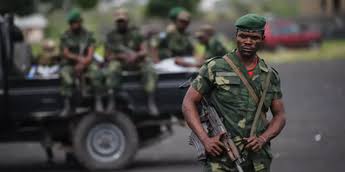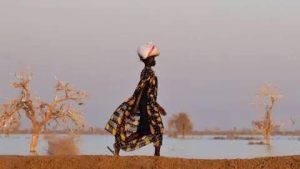
Attempted Coup in the DRC or a Direct Message to the Authority?
The Democratic Republic of Congo (DRC) recently experienced an attempted coup that was successfully thwarted by the Congolese army. The coup targeted the residences of high-ranking state officials, including President Felix Tshisekedi. The incident resulted in several casualties, including the death of the coup’s leader, Christian Malanga.
The Coup Attempt
The attempted coup was orchestrated by Christian Malanga, a Congolese politician and former military officer who resided in the United States. Three American citizens were among those arrested for their alleged involvement in the coup attempt. The incident led to a death toll of six individuals, including three assailants and their leader, Christian Malanga. The attacks included a shootout at the residence of Vital Kamerhe, a close ally of President Tshisekedi, and near the presidential palace, resulting in the deaths of two police officers and one attacker.
Reactions and Aftermath
The security breach raised widespread concern regarding the protection of the presidential palace and the government’s ability to maintain control. The African Union (AU), the Southern African Development Community (SADC), and countries like South Africa and Namibia condemned the failed coup attempt. In response to the unrest, the United States Embassy in Congo issued a security alert, advising caution due to reports of gunfire.
In the aftermath, a heightened military presence was observed in key areas of Kinshasa, signalling the government’s efforts to restore order and investigate the incident. President Tshisekedi, who was re-elected in December amid controversial and disputed voting, has not yet made a public statement regarding the events of the attempted coup.
Implications
The foiled coup attempt in the DRC highlights the ongoing challenges faced by the country in ensuring political stability and security. The involvement of foreign nationals, including Americans, adds an international dimension to the incident, raising questions about the broader implications for the DRC’s relations with other countries.
Christian Malanga and Marcel Malanga
Christian Malanga, 41, was the leader of the coup attempt and was killed during the uprising. His 21-year-old son, Marcel Malanga, also participated in the coup and remains captive in the central African nation.
Christian Malanga was a Congolese politician, businessman, and military officer. He was the President of the United Congolese Party (UCP) and had previously served as the first ambassador of the International Religious Freedom Roundtable. He formed the UCP after his experiences in the DRC’s disputed parliamentary elections in 2011. Born on January 2, 1983, in Kinshasa, he had ties to both Bandundu Province and Ngaba, Kinshasa.
In addition to his political endeavours, Malanga was involved in various business ventures, including co-founding the non-profit organisation Africa Help. He moved to the United States as a political refugee in 1998 and settled in Salt Lake City, Utah, where he lived with his family, including his son Marcel. Marcel, born in 2003, spent his life in Utah, attended Highland High School, and was active on social media, showing interests in Christian philosophy, diamonds, and assault rifles.
Was it an Attempted Coup or a Targeted Message?
Based on the narrative, it is clear that there was an attempted coup in the DRC. The leader of the coup was killed, and around 50 people, including three American citizens, were arrested. The Congolese army and security forces successfully thwarted the coup attempt.
Critics argue that the attempted coup was deliberately engineered to send a specific message rather than to overthrow the government. They suggest the involvement of high-ranking officials who might have orchestrated this event to showcase the vulnerability of the state and to warn President Felix Tshisekedi about potential dissent within his ranks. The targeted attacks on the residences of key officials, including Tshisekedi and his ally Vital Kamerhe, hint at a symbolic rather than a genuine power grab.
The foiled coup attempt in the DRC highlights the ongoing challenges faced by the country in ensuring political stability and security. The involvement of foreign nationals, including Americans, adds an international dimension to the incident, raising questions about the broader implications for the DRC’s relations with other countries.
Circumstances and Potential Outcomes: Not a Coup but a Message
Analysing the incident, several factors suggest it was more of a message than a serious coup attempt:
1. Location and Targets: The attacks focused on high-profile residences rather than strategic government buildings, indicating a demonstration of reach rather than an attempt to seize control.
2. Execution and Result: The swift neutralisation of the attackers and the immediate capture of many participants, including three Americans, suggests an operation that was either poorly planned or deliberately designed to fail.
3. Publicity: The involvement of foreign nationals and the broad international condemnation imply a calculated move to draw global attention rather than a genuine bid for power.
Comparisons with Successful Coups
- Turkey, 2016: The attempted coup in Turkey involved the use of military force to control media outlets, key infrastructure, and government buildings. The plotters aimed to take over the entire governmental apparatus, unlike the limited scope of the DRC attempt.
- Egypt, 2013: The military coup that ousted President Morsi involved coordinated action by the military across the country, securing critical locations and swiftly establishing control over the state, contrasting sharply with the localised and symbolic nature of the DRC event.
- Thailand, 2014: The Thai military’s coup was characterised by a detailed plan to control the capital, neutralise opposition, and seize control of communication channels, demonstrating a level of organisation absent in the DRC incident.
These successful coups were marked by comprehensive planning, strategic targeting of government control centres, and immediate establishment of control, which the DRC attempt notably lacked.
Potential Traitors and Investigation Strategies
There may be insiders within the government who supported Christian Malanga to send a warning to President Tshisekedi. The fact that Malanga and key members were killed while others were captured raises suspicions about an orchestrated elimination of those with potentially damaging information.
To investigate, authorities should:
- Analyse Communication: Scrutinise phone and electronic communications of those involved to trace connections to government insiders.
- Financial Transactions: Investigate any unusual financial activities or transfers linked to Malanga and the arrested individuals.
- Interrogations: Conduct thorough interrogations of the captured assailants to uncover possible collaborators within the government.
Security Breaches and Tactical Questions
The assailants’ ability to enter Kinshasa with firearms and the use of social media to broadcast their plans raise serious questions about the DRC’s security measures. Key points to investigate include:
- Access Routes: How the attackers transported weapons into the city and whether they had inside help.
- Social Media Broadcast: The decision to go live on Facebook indicates a desire for publicity, possibly advised by an individual aiming to ensure the event’s visibility and subsequent impact.
- Security Failures: The gaps in security protocols that allowed the assailants to approach and attack high-security residences need urgent review and reinforcement.
Summary
The recent incident in the Democratic Republic of Congo (DRC), initially portrayed as a coup attempt, appears to be a calculated move to send a stark message to the nation’s leadership. This event underscores the underlying instability and potential internal threats within the country. The investigation must uncover any collusion within the government and address the security vulnerabilities exposed by this incident.
The Congolese people must recognise that the previous regime, which held power for 18 years, entrenched corruption within the justice system, military, and public funds. President Felix Tshisekedi, now serving his second term, has inherited a legacy of systemic damage. Implementing his vision for a better future for the DRC, while addressing the chaos left by his predecessor, is a monumental task that will require time.
A significant milestone is the reformation initiated by President Tshisekedi, including recruiting 5,000 new magistrates. Speaking on Top Congo FM, the president highlighted this achievement. However, the international community often views the DRC through a lens of conflict and instability, economic vulnerability, poverty, and inequality. Challenges such as providing reliable electricity, water, and transportation infrastructure further complicate the situation.
For genuine progress, the justice system must be reformed, and corruption must be aggressively tackled. Despite his efforts, President Tshisekedi faces considerable resentment from those resistant to change. His commitment to reform is not fully appreciated, yet these are crucial steps towards stabilising the country and fostering long-term development.
In conclusion, while the recent coup attempt might have been intended to send a message rather than seize power, it highlights the complex challenges President Tshisekedi faces. Addressing these challenges will take time, but with persistent efforts, the DRC can move towards a more stable and prosperous future.
______________________________
Aric Jabari is a Fellow of the Sixteenth Council



